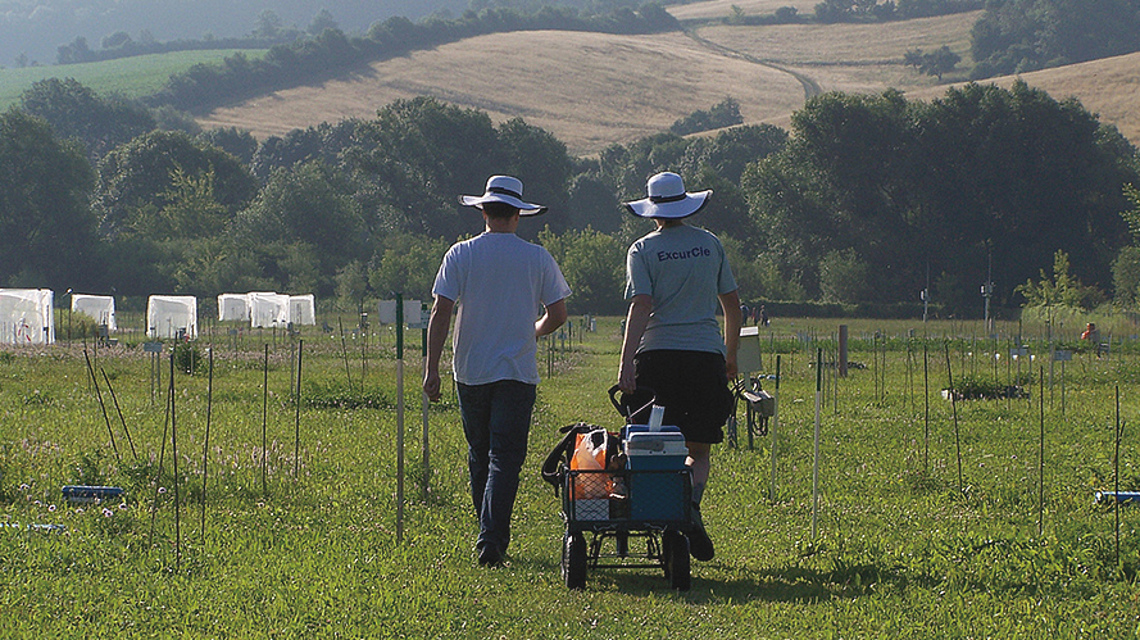Long-term `Jena Experiment´ celebrates
Europe's largest field laboratory for biodiversity research celebrates anniversary: 15 years of the "Jena Experiment".

You need to have a great deal of stamina and specialised knowledge to study biodiversity on agricultural land. The 'Jena Experiment' is a prime example of biodiversity research in a field laboratory. It was initiated in 2002 by the Max Planck Institute for Biogeochemistry and the Friedrich Schiller University Jena (FSU). It is not only the longest-running biodiversity experiment in Europe, but also the largest. Beginning on 7 February, the two-day symposium in Jena celebrated the 15-year anniversary of the experiment.
Plant diversity on former farmland
The plot, of almost 10 hectares, on the floodplain of the river Saale, was formerly used as arable land. Today, on over 600 experimental plots, herbs, grasses and legumes grow among flowers, that attract insects, worms, birds and other small creatures each summer. "We aim to discover how plant diversity and composition affects the element cycles in soil or species coexistence, explains Anne Ebeling, the Scientific Co-ordinator of the 'Jena Experiment' at the FSU.
For the past 15 years, the Friedrich Schiller University Jena has led scientific investigations of plant diversity and its effects on species diversity, element cycles and ecosystem processes. Scientists from diverse research groups collaborate to farm a field; analysing diverse topics – such as pollination, interactions between soil organisms and above-ground plant parts, and nitrogen and oxygen cycles.
Long-term data produces new findings
The gathering of long-term data was central to the 'Jena Experiment'. This can provide answers to fundamental questions regarding the role of biodiversity and its purpose for ecosystems. In recent years, almost 200 scientific publications have been issued to show how biodiversity protects ecosystems from climate extremes, that diverse grasslands grow better following flooding and that plant diversity increases micro-organism activity and carbon savings in the soil.
Research secured until 2018
Biodiversity research in Europe's largest field laboratory is guaranteed until May 2018. Last year, the Deutsche Forschungsgemeinschaft [German research community] was granted further funding totalling more than 4 million euros. More than 100 researchers from Germany, the Netherlands, Switzerland, France, Austria and the USA are involved in the 'Jena Experiment'. The German Centre for Integrative Biodiversity Research (iDiv) is participating in the study, alongside the FSU, Leipzig University, Munich Technical University and the Max Planck Institute for Biogeochemistry in Jena.


